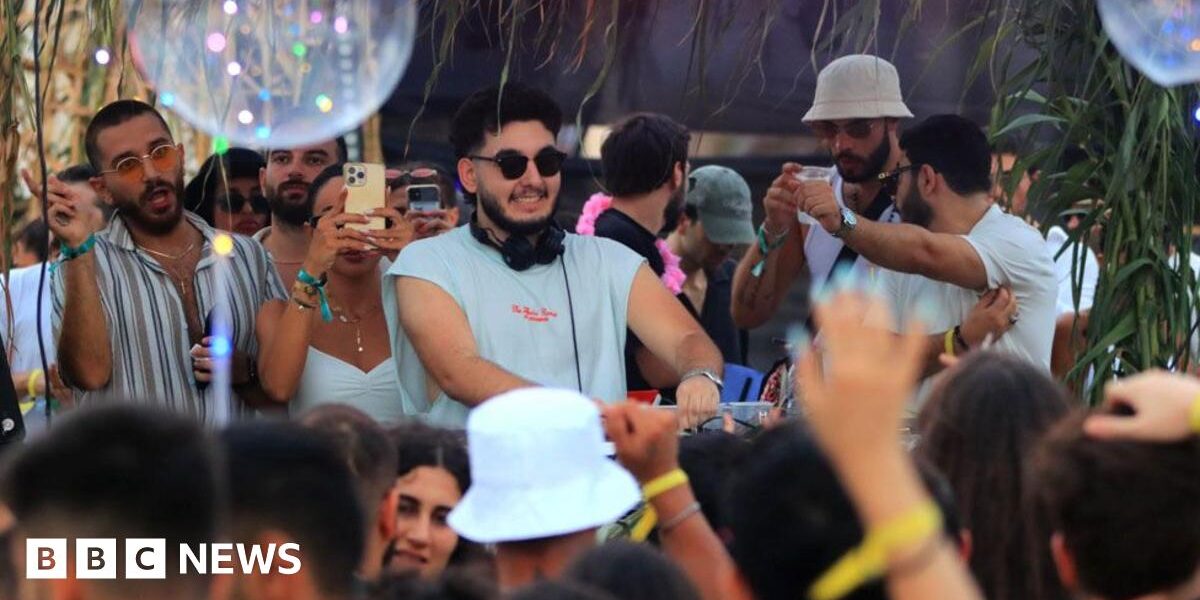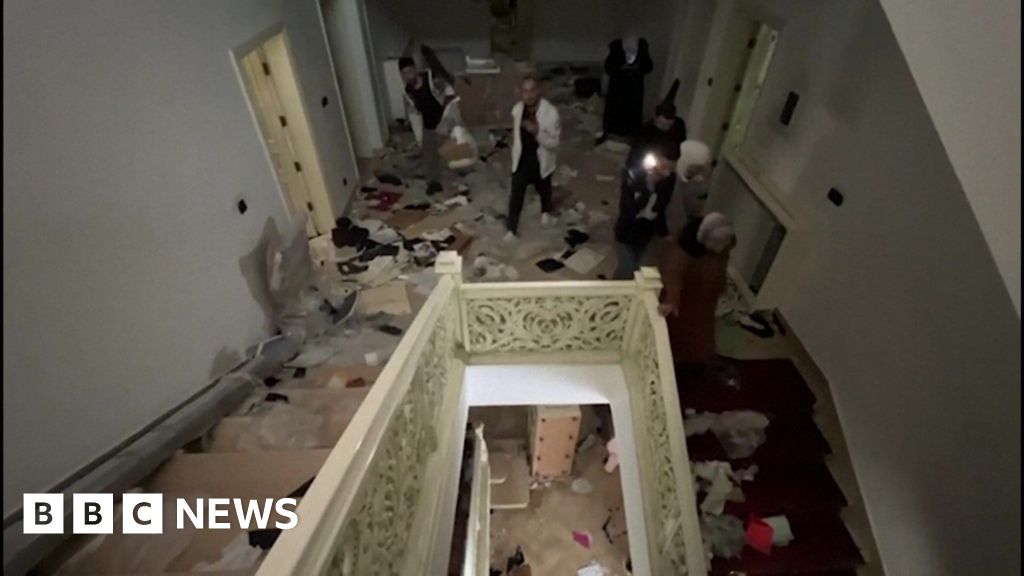In the square outside the Opera House, Safana Bakleh was trying to perform revolutionary songs with the choir she directs. Joined by enthusiastic youths, she handed over her drum and let them chant and sing.
“It’s maybe not going to be an easy path,” she said. “Maybe we will have some new obstacles, but we used to have corruption, we used to have dictatorship, we used to have secret police. We’re still very hopeful for the future…because we have a very, very large group of people that are opposition and artists and actors, musicians and composers and the future of Syria.”
But they do not want to exchange political authoritarianism for religious fundamentalism, said al-Hadidi.
“I hope that HTS stands by their words about freedom, because we don’t want to be another Afghanistan or another country ruled by a specific party or rulers who enforce you to (follow) some rules.”
Determined to stay part of Syria’s future, Green said it is important for the artistic community to act quickly.
“It doesn’t seem like in the first week of freeing Syria, (HTS) is willing to look for the cultural side. They have a lot of problems, they’re looking for the economy, looking for making a new government,” he said.
“We are trying to organise ourselves before they start looking at culture. So that we get there first, (and we must be) united in our opinions.”
Like others here, Green has been experimenting, mixing traditional Arabic music with electronic beats.
The culture of the Islamist rebels “is religious songs and that’s it,” he said.
“This is a little bit backward for us. We were here in Syria before the war, and inside during the war, (when) we had so many experiments. We evolved so much. We have so much mixed culture.”
Syria’s music scene revived and even thrived during the civil war – now it faces a new and unexpected test.





